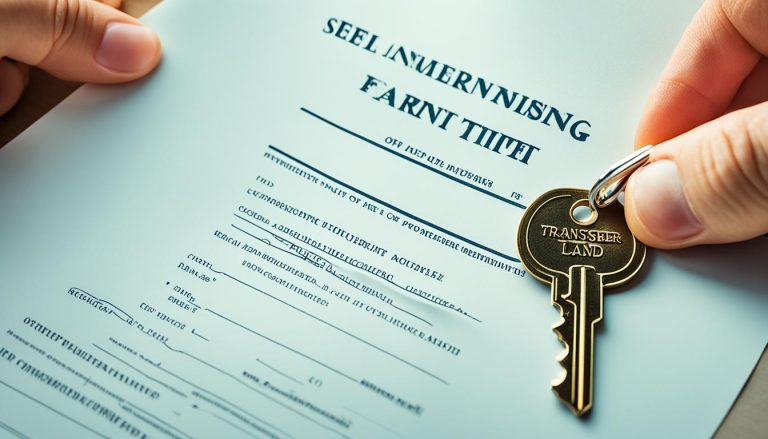The decision to retire abroad is more than just a lifestyle choice—it’s a strategic move for many Britons looking to optimize their financial future.
While year-round sunshine, vibrant cultures, and a lower cost of living are all enticing, the real game-changer for retirees is the opportunity to reduce or avoid hefty UK taxes, including inheritance tax (IHT).
The latest policy shakeups, including Labour’s revisions to the ‘non-dom’ system, have made it possible for retirees living abroad for over ten years to sidestep inheritance tax on foreign assets.
This change, coupled with the UK’s existing inheritance tax structure, has opened up new opportunities for tax-conscious Britons. In this blog, we’ll explore how these strategies work and why popular destinations like the UAE are booming with British retirees.
Understanding UK Inheritance Tax for Retirees

Inheritance tax (IHT) is often referred to as the “death duty,” and its implications can significantly affect how much of your estate is passed on to your heirs. The UK government imposes this tax at a staggering rate of 40% on any portion of your estate exceeding the £325,000 threshold.
Important Points to Consider:
- If you leave assets to your spouse or civil partner, IHT does not apply.
- There are additional allowances if you pass on your home to a direct descendant, increasing the threshold to £500,000.
- However, assets outside of these exemptions are fully taxable, creating a substantial financial burden for many families.
For Britons retiring abroad, the question arises: Does moving abroad help you escape UK inheritance tax? The answer lies in how domicile status is established and how your assets are managed.
Why Britons Are Choosing to Retire Abroad?
The trend of retiring abroad isn’t new, but the scale at which Britons are making this move is unprecedented. Countries like the UAE have become hotspots for retirees seeking financial freedom and a better quality of life.
Key Factors Behind This Trend:
- Tax-Free Earnings: The UAE, for instance, offers a zero-income-tax policy, which is a massive relief for those looking to build wealth in retirement.
- Luxury Lifestyle: Cities like Dubai and Abu Dhabi offer world-class healthcare, infrastructure, and entertainment.
- Growing Expat Communities: The UAE is home to more than 240,000 British expats in Dubai and 250,000 in Abu Dhabi, creating a supportive community for newcomers.
These factors, combined with political and economic shifts in the UK, are prompting retirees to look beyond British shores for better opportunities.
The Inheritance Tax Loophole Explained
Inheritance tax (IHT) has long been a concern for Britons planning their estates, particularly when the tax rate on assets exceeding the threshold stands at a steep 40%.
For retirees moving abroad, understanding how to legally minimize or eliminate this tax burden is critical. Recent policy shifts, including Labour’s reforms to the ‘non-domicile’ (non-dom) system, have created opportunities for retirees to shield their foreign assets from UK inheritance tax.
What Is the Inheritance Tax Loophole?
The inheritance tax loophole allows British citizens retiring abroad to avoid UK inheritance tax on assets located outside the UK. This is possible by establishing non-domicile status, which changes an individual’s tax obligations to reflect their new country of residence rather than the UK.
Under these rules:
- Foreign-held assets, such as property, investments, or savings in another country, are not subject to UK inheritance tax.
- Only UK-based assets, such as property or bank accounts retained within the UK, remain taxable.
For example, a retiree who moves to Dubai and transfers their wealth into local investments or bank accounts can avoid UK inheritance tax on these foreign-held assets, provided they meet the legal requirements for non-domicile status.
Key Criteria for the Loophole
To benefit from this loophole, retirees must meet specific criteria:
- Residency Abroad: You must live outside the UK for at least 10 years. This period is critical for severing ties with the UK and establishing domicile in your new country of residence.
- Domicile Status: You need to prove that you have adopted a new permanent home abroad, meaning your primary residence and ties should shift to your new country.
- Tax Compliance: It’s essential to comply with the tax laws of your new country, ensuring that your assets are managed within its legal framework.
The UK still applies inheritance tax to assets retained within its borders, such as property or shares, so comprehensive estate planning is essential to maximize this loophole.
Practical Benefits of the Loophole
The inheritance tax loophole can provide significant financial relief for retirees.
- Tax-Free Assets: Retirees with substantial investments abroad can pass on their wealth to heirs without the 40% deduction that would otherwise apply under UK inheritance tax rules.
- Increased Estate Value: By relocating and managing assets wisely, retirees can preserve more of their wealth for future generations.
- Global Financial Flexibility: Retiring in a country like the UAE, with zero inheritance tax, creates an ideal scenario for individuals looking to minimize taxes on their estates.
Real-Life Application
Consider the case of Sarah, a retired nurse who moved to Portugal:
- Sarah sold her UK property and invested the proceeds in Portuguese real estate.
- After establishing her non-domicile status and spending 10 years abroad, her estate became exempt from UK inheritance tax.
- Upon her passing, her children inherited her wealth tax-free, saving the family an estimated £250,000.
Such scenarios highlight the transformative financial impact of leveraging this loophole effectively.
Labour’s Changes and the Future of the Loophole

Labour’s reforms have brought the ‘non-dom’ system into sharper focus. The policy changes replace the traditional domicile framework with a residency-based model, meaning retirees who live abroad for over 10 years can qualify for this loophole.
However, retirees should be aware of the potential risks, such as:
- Policy Changes: Future governments may adjust or close the loophole.
- Unintended Consequences: Missteps in compliance could result in penalties or loss of tax exemptions.
How to Utilize the Loophole Safely?
For those looking to take advantage of this inheritance tax loophole:
- Seek Professional Advice: A tax advisor with expertise in cross-border financial planning can help navigate complexities.
- Document Intentions: Ensure clear documentation of your decision to establish a new domicile abroad.
- Plan UK Asset Management: Consider selling, transferring, or restructuring UK-based assets to minimize exposure to inheritance tax.
By taking these steps, retirees can secure their financial legacy while adhering to legal requirements.
Non-Domiciled Status and Its Role
Establishing non-domicile status is the cornerstone of inheritance tax planning for expats. This status is granted to individuals who have officially moved their domicile to another country.
Steps to Obtain Non-Domicile Status:
- Declare Intent to Stay Abroad: Show proof that your permanent home is outside the UK.
- Limit UK Ties: Avoid retaining UK property, investments, or prolonged visits.
- Comply With Local Laws: Ensure that you are legally domiciled in your new country.
Key Benefits:
- Exemption from UK inheritance tax on foreign-held assets.
- Access to local tax regimes, many of which are more favorable than the UK’s.
However, navigating these legalities can be complex. Professional advice is strongly recommended to avoid pitfalls.
Estate Planning for Britons Abroad
Once you’ve established non-domicile status, the next step is to ensure your estate is structured to maximize tax efficiency.
Effective Strategies for Expats:
- Set Up Trusts: Trusts are legal entities that allow you to manage and protect your assets while minimizing tax liabilities.
- Lifetime Gifting: Transferring wealth to heirs during your lifetime reduces the taxable portion of your estate.
- Diversify Assets: Spread your investments across different jurisdictions to take advantage of varying tax laws.
Additional Considerations:
- Always consult financial advisors familiar with both UK and international tax regulations.
- Regularly update your estate plan to reflect changes in laws or your personal circumstances.
Risks and Limitations of Tax Loopholes

While the benefits of inheritance tax loopholes are clear, they are not without risks:
- Policy Changes: Governments can modify tax laws at any time, potentially eliminating loopholes or imposing new requirements.
- Non-Compliance Penalties: Failure to meet domicile requirements can result in significant fines or back taxes.
- Complicated Administration: Managing assets across multiple countries adds layers of complexity to estate planning.
Being proactive and seeking professional advice can help mitigate these risks.
Conclusion
Retiring abroad offers not only a new lifestyle but also significant financial advantages. By understanding inheritance tax loopholes and leveraging non-domicile status, Britons can protect their wealth and ensure a secure future for their families. However, staying informed and consulting experts is essential to navigate the complexities of cross-border tax planning effectively.
FAQs
What is the inheritance tax threshold for expats?
The UK threshold is £325,000, but non-domiciled individuals can exempt foreign assets.
How can I qualify for non-domicile status?
Spend at least 10 years abroad, avoid significant UK ties, and declare your new domicile.
What happens to my UK assets if I retire abroad?
UK-based assets remain subject to inheritance tax unless sold or transferred.
Are there risks to using inheritance tax loopholes?
Yes, including policy changes, compliance challenges, and administrative complexities.
Which countries offer the best tax benefits for UK retirees?
The UAE, Portugal, and Malta are among the most tax-friendly destinations for British expats.






